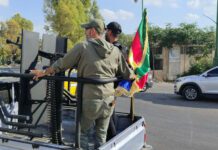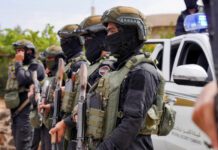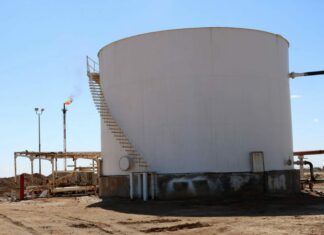
In the months since the fall of Bashar al-Assad’s regime, Suwayda has emerged as a critical test for Syria’s transitional government. Long marginalized under Assad, the governorate now finds itself at the center of national efforts to rebuild trust, implement reforms, and confront external threats without compromising Syria’s national unity and territorial integrity.
Agreements & Mutual Understanding
On March 12, the governor of Suwayda, Mustafa al-Bakour, and the Druze spiritual leader, Sheikh Hikmat al-Hijri, signed a memorandum of understanding outlining key demands. These included reactivating judicial and police bodies, organizing defected officers under the Ministry of Defense, and reinstating wrongfully dismissed employees. It also called for long-delayed salary payments, administrative reforms, and the allocation of a new university headquarters.
While officials presented the memorandum as a step toward stability, Suwayda 24 reported it was a list of demands, conditional on the new government’s willingness to follow through. A representative of the administration pledged to meet these terms, but activists warned that many issues remain unresolved.
The agreement came days after President Ahmad al-Sharaa met with a delegation of Suwayda activists at the People’s Palace in Damascus, a gesture seen as a serious attempt to engage the province. Yet, divisions persist, particularly over the integration of local armed groups. Some factions have resisted merging with the Defense Ministry, while others back the effort.
Attempts to Sow Discord
Further complicating the picture is the emergence of the self-proclaimed Suwayda Military Council. In a February statement, it expressed interest in cooperating with Damascus but drew criticism amid accusations of Israeli support. Neither the new government nor local factions have formally recognized the group, with many rejecting its separatist overtures, fueling speculation about its legitimacy and goals.
Israel’s increasing activity in southern Syria has only deepened tensions. In Suwayda, nationalist forces rejected Israeli claims of defending Druze communities and accused Tel Aviv of exploiting the conflict. In the Karama Square, demonstrators condemned Israeli airstrikes on Daraa and reaffirmed their commitment to a united Syria.
A Letter to President Al-Sharaa
This stance was echoed in a March 26 open letter signed by prominent Druze leaders Youssef Jarbou and Hamoud al-Hanawi. Addressed to civil society and the interim president Sharaa, the letter called for national unity, rejection of foreign interference, and a reexamination of the transitional Constitutional Declaration. It urged the drafting of a permanent constitution through inclusive dialogue, with a focus on justice, representation, and the separation of powers.
The letter warned against individual dealings with foreign entities and demanded that the Syrian flag be raised as the sole national symbol. It also called for judicial reforms, the end of arbitrary firings, and a stronger role for citizens in shaping the country’s political and economic future.
As Syria rebuilds, Suwayda is signaling a clear message to Damascus: reform must be real, unity must be preserved, and sovereignty must not be sold. In the heart of a fragile new era, the province is pushing to make sure this time, its voice is heard.








